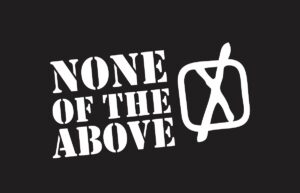Other Service Providers (OSP) | UPSC – IAS
Recently Department of Telecom eased rules for other service providers (OSP) in the business process outsourcing (BPO) and information technology-enabled services (ITes).
- Who are OSPs or other service providers are:– OSPs refer to firms providing services like voice based and data based outsourcing and other services popularly known as BPOs. Companies or firms which provide secondary or tertiary services such as telemarketing, telebanking or telemedicine for various companies, banks or hospital chains, respectively.
General Guidelines for OSPs are as follows:-
- No registration certificate will be required for OSP centres in India.
- Special dispensations for OSPs:
- For the OSPs the collection, conversion, carriage and exchange of the PSTN/PLMN/ISDN traffic over the Virtual Private network (NPLC, MPLS VPN) interconnecting the different OSP Centres is permissible.
- The International OSPs are allowed to carry the aggregated switched voice traffic from their POP in a foreign country to their OSP centre in India over leased line/MPLS VPN.
- Interconnectivity of two or more Domestic OSP Centres of the same Company or group of companies is permitted. Similarly, interconnectivity among International OSP Centres is permitted.
- Interconnection of Remote Agent to the OSP centre/resources is permitted.
- An OSP having multiple centres may obtain internet connection at a centralised location and this internet can be accessed from other OSP centres using leased circuits/ MPLS VPN.
- The OSPs may also operate as under:
- Work From Home (WFH)
- Work From Anywhere (WFA) in India
- Infrastructure sharing
- Centralized EPABX (i.e., Distributed Architecture of EPABX)
- NO Bank Guarantee whatsoever will be required for any facility or dispensation under these Guidelines.
- The concept of Work-From-Home/ Work-From-Anywhere shall be treated as Extended Agent Position/ Remote Agent of the OSP.
- Interconnectivity between OSP centres belonging to different OSP companies shall be permitted.
- Bypass of licensed International Long Distance Operator (ILDO) and National Long Distance Operator (NLDO) jurisdiction should not take place.
- EPABX at foreign location in case of international OSP will be allowed. However, the OSP will take all the necessary measures to comply with the requirements of relevant provisions of Indian laws including applicable data privacy laws. In addition, the OSP shall maintain a copy of CDR and System logs in storage at any of its OSP centres in India.
Significant analysis of the eased rules are:-
- With the government recognising OSP employees as extended or remote agent, companies providing such services will no longer have to carry the additional compliance burden of providing the details of all such employees to the DoT.
- It has done away with many compliance requirements that these firms were subject to. These include reporting obligations, furnishing of bank guarantees and publication of network diagrams or a diagrammatic representation of how the computers of the firms are linked to each other.
- The doing away of registration norms will also mean that there will be no renewal of such licenses and therefore will invite foreign companies to set up or expand their other service providing units in India.
- An important change, which takes data-based OSPs completely out of the ambit of BPOs would mean that such firms can function like any other service firm without the strict and cumbersome guidelines such as presence of agent on location.




